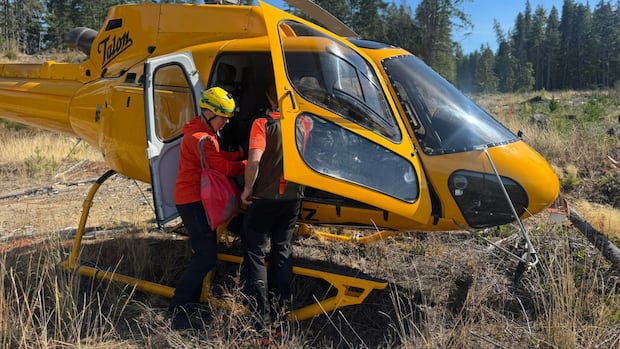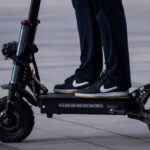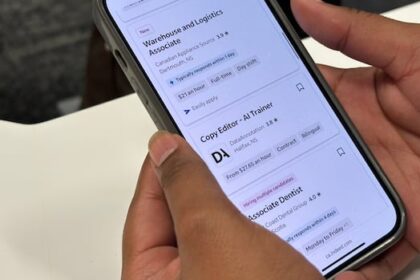British ColumbiaA B.C. search-and-rescue team says a new piece of technology allows them to search for missing people’s cell phones in areas where there would otherwise be no signal.North Shore Rescue believes it’s the 1st in B.C., and perhaps Canada, to use the Lifeseeker unitCBC News · Posted: Sep 22, 2025 1:22 PM EDT | Last Updated: 5 hours agoNorth Shore Rescue volunteers are seen next to one of their helicopters while rescuing a missing man near Nanaimo, B.C., on Sept. 19. (North Shore Rescue/Facebook)A B.C. volunteer search-and-rescue team says it believes it is the first in the province, and likely in Canada, to use a portable cell tower on a helicopter as part of a rescue operation.North Shore Rescue (NSR) said it was called to assist Nanaimo SAR on Friday morning, after a man reportedly went off his e-bike the previous day and had not returned.Rescuers were told that there had been some contact with the man’s cellphone, but his exact latitude and longitude weren’t known.That’s when they deployed the recently-acquired LifeSeeker unit, which had been installed on one of their helicopters. It functions like a portable cell tower and helps locate cellphones in the backcountry, where there would otherwise be no signal.North Shore Rescue says the Lifeseeker technology works like a portable cell tower that enables them to search for cellphones in a wide area where there is otherwise no signal. They can use it on one of their helicopters and on a four-by-four vehicle. (North Shore Rescue/Facebook)Allan McMordie, one of NSR’s search managers, said the device works if rescuers know the phone’s IMEI serial number and if it’s currently on.”We’re the first one, that I believe, that has ever used it in a volunteer search-and-rescue capacity, and I don’t know if anybody else in Canada has this device,” McMordie told CBC News.The man was subsequently located and rescued safely, the search manager said.The portable cell tower was installed on one of NSR’s Talon helicopters, pictured here. (North Shore Rescue/Facebook)McMordie added that, without the aid of the portable cell tower, rescuers would have had trouble locating the man, who was otherwise off the grid.”This is the culmination of a lot of work done by people on our team, done by people helping out our team, and a great investment of funds that have been donated to us from the community,” McMordie said.The search manager estimated that the LifeSeeker technology cost around $250,000, and acknowledged it took a while to install on the team’s helicopter and learn how to operate it.But he said the technology could start seeing more use in B.C., especially if rescuers know that missing people have cellphones on them.Centum, the company behind the Lifeseeker system, says on its website that the technology has been used on 220 successful rescue missions across four continents.McMordie advises anyone going out into the backcountry to tell people of their planned routes and carry essential items, like a compass, light and first-aid kit. “A big recommendation from us is don’t rely entirely on your phone for everything. Preserve that battery power. Take one of those external battery packs with you,” he said. “Keep it warm, have that as a backup, but don’t rely on your phone to do everything.”With files from Maryam Gamar
B.C. rescuers use helicopter-mounted cell tower to find missing man











